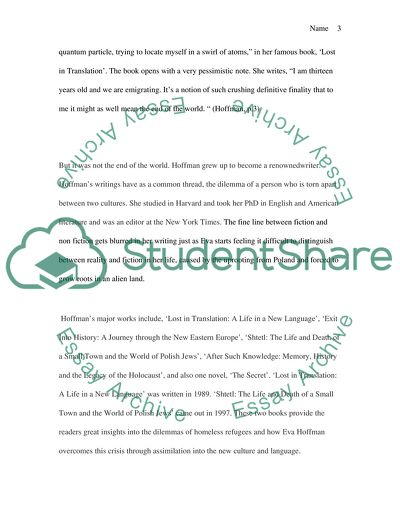Cite this document
(The Impacts of Western and Polish Cultures in Eva Hoffmans Writings Research Paper, n.d.)
The Impacts of Western and Polish Cultures in Eva Hoffmans Writings Research Paper. Retrieved from https://studentshare.org/literature/1730025-research-essay
The Impacts of Western and Polish Cultures in Eva Hoffmans Writings Research Paper. Retrieved from https://studentshare.org/literature/1730025-research-essay
(The Impacts of Western and Polish Cultures in Eva Hoffmans Writings Research Paper)
The Impacts of Western and Polish Cultures in Eva Hoffmans Writings Research Paper. https://studentshare.org/literature/1730025-research-essay.
The Impacts of Western and Polish Cultures in Eva Hoffmans Writings Research Paper. https://studentshare.org/literature/1730025-research-essay.
“The Impacts of Western and Polish Cultures in Eva Hoffmans Writings Research Paper”. https://studentshare.org/literature/1730025-research-essay.


